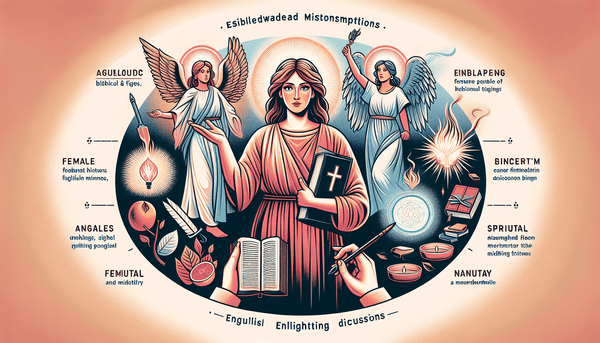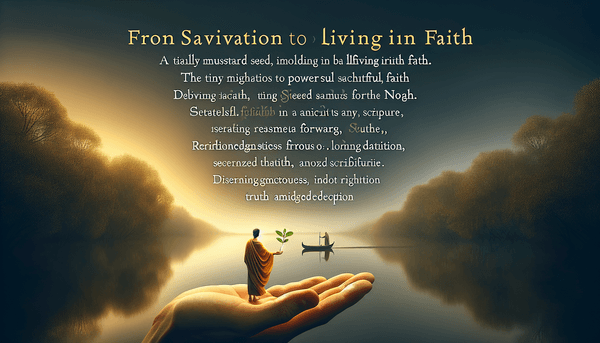The Biblical Perspective on Fasting
Fasting in the Bible is more than a mere abstention from food; it's an act of humility and devotion, aimed at enhancing one's spiritual focus and closeness to God. It serves as a tool for repentance, an earnest seeking of divine guidance, and a powerful declaration of one's dependence on God rather than worldly sustenance. Throughout biblical times, there were various forms of fasting practiced, ranging from absolute fasts, involving refraining from all food and drink, to partial fasts, where only certain foods were avoided. An example of such is the Daniel Fast, where meats, wines, and select foods were shunned in an effort to purify both the body and the spirit (Daniel 1:8-14). Jesus himself undertook a 40-day fast, enduring temptation and preparing for His ministry (Matthew 4:1-2). The Bible also teaches us the right attitude towards fasting: we are to do so not for public admiration, but for God's eyes alone, ensuring our rewards come from the Father who sees in secret (Matthew 6:16-18).
Being Unequally Yoked with Unbelievers
The metaphor of being 'unequally yoked' with unbelievers, taken from agriculture, describes a scenario where two animals of different strengths or sizes are bound together, causing an imbalance and difficulty in working towards a common goal. This imagery is used in the Bible to illustrate the potential spiritual and emotional complexities that arise when believers form close partnerships with non-believers. The scriptures caution us against such alliances that may lead us astray from our faith or cause conflicts in values (2 Corinthians 6:14). It is not a call for isolation but rather an encouragement to seek unity among fellow believers and to build relationships that are edifying and godly (Ephesians 4:3). However, this does not mean shutting out non-believers entirely. Christians are called to love and witness to others while maintaining their own convictions and integrity (1 Peter 3:1-2).
The Importance of Quality in Our Spiritual Work
The Bible speaks of the importance of the foundation upon which we build our spiritual lives, urging us to construct our faith upon the solid rock that is Christ (1 Corinthians 3:11). The work we do in His name is likened to building materials, which will be tested by fire to reveal their quality (1 Corinthians 3:12-13). Indeed, it is not the quantity but the quality of our spiritual work that is of utmost importance. The deeds we perform in faith and love will endure and bring eternal rewards (Galatians 6:7-8). Striving for excellence in our faith journey is a testament to our dedication to God. We are called to live lives worthy of our calling, doing everything for His glory, and relentlessly pursuing righteousness and godliness (Ephesians 4:1, Colossians 3:23-24, Matthew 5:6).
FAQ
Q: What is the concept of 'Schwarzfasten'?
A: The concept of 'Schwarzfasten' is not explicitly mentioned in the Bible, therefore I cannot provide information about it.
Q: How does one fast according to the Bible?
A: In the Bible, fasting is described as abstaining from food and sometimes other comforts. It's a time for spiritual focus and dedication to God. People engage in prayer, repentance, and seek God's guidance during fasting. There are also instances of 'partial fasting,' where specific types of food are avoided.
Q: What does the Bible say about fasting?
A: The Bible describes fasting as a time of abstinence and dedication to God. People fasted to emphasize their dependence on God, to repent, to seek guidance in difficult times, or to pray for others' needs. Jesus fasted for 40 days in the wilderness before beginning His ministry.
Q: What does 1 Corinthians 3:15 mean?
A: 1 Corinthians 3:15 discusses the quality of one's spiritual work. It suggests that everyone's work will be tested by fire to reveal its nature. If one's work survives the test, they will be rewarded; if it is burned up, they will suffer loss but still be saved, albeit as one escaping through flames.






